#LGBTI Africa
Explore tagged Tumblr posts
Text
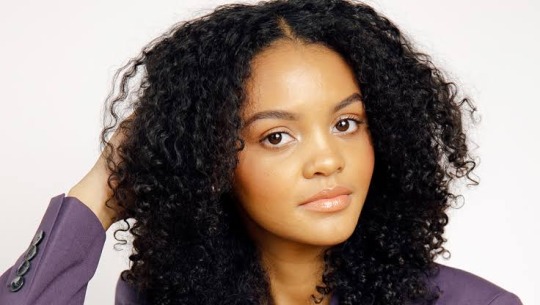

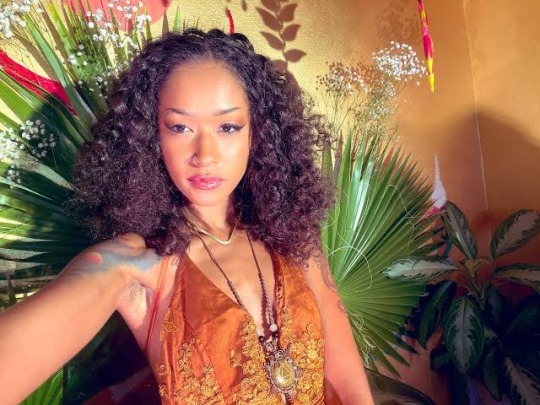
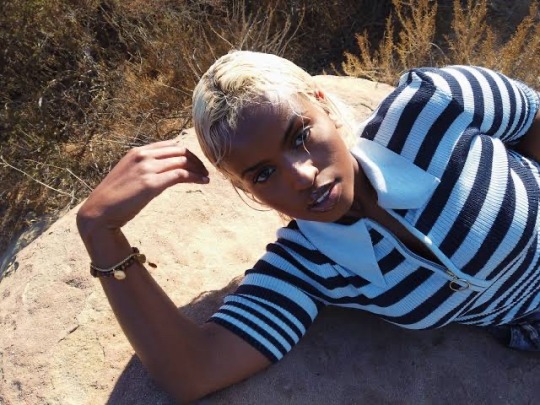
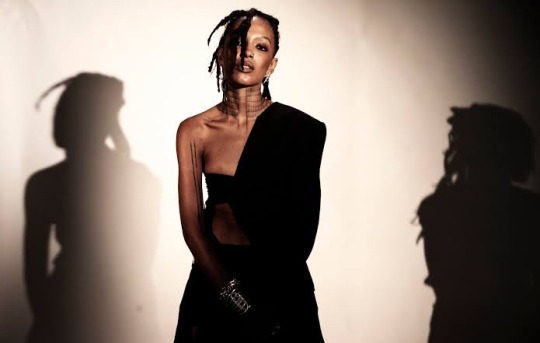
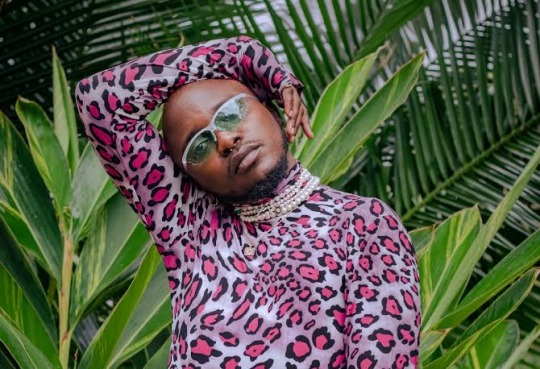

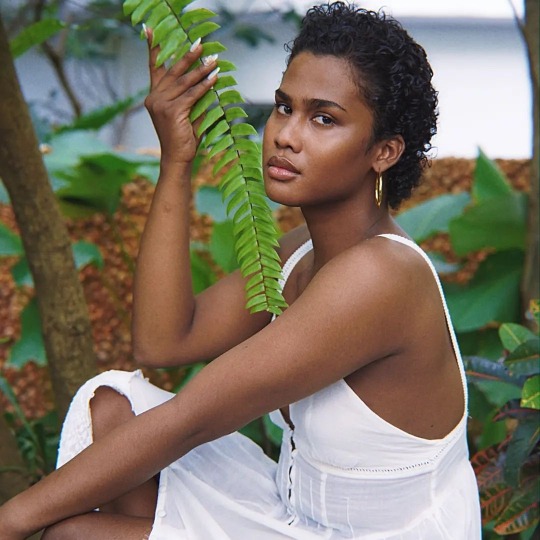
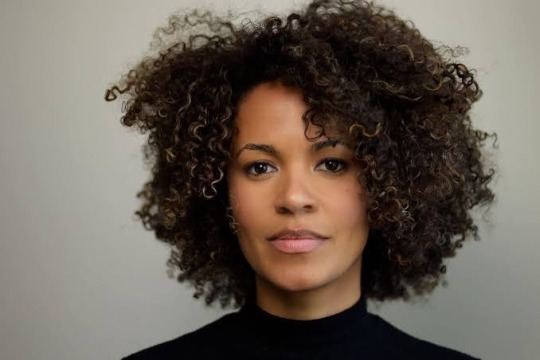
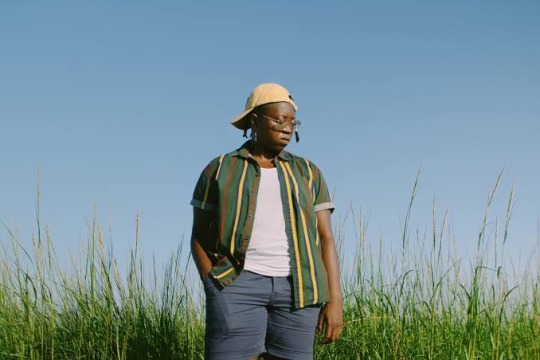
LGBTI and of East African descent
Celeste O’Connor (Kenya)
Aida Osman (Eritrea)
Raylin Joy (Ethiopia)
IDMAN (Somalia)
Alewya (Ethiopia)
Chimano (Kenya)
Solomon Georgio (Ethiopia)
Savina Rise Mizrahi (Sudan)
Erica Luttrell (Tanzania)
Anjimile (Malawi)
#lgbti in east africa#celeste o’connor#aida osman#raylin joy#idman#alewya#chimano#solomon georgio#savina rise mizrahi#erica luttrell#anjimile#ethiopia#eritrea#kenya#somalia#tanzania#malawi#sudan
25 notes
·
View notes
Text
Deep Routed Human Rights Issues in Algeria Morocco - Despite UN Review

Severe violations of human rights continue unabated in both Algeria and Morocco, while many laws in each country are far from aligned with international standards, Amnesty International said today, following the UN Human Rights Council’s Universal Periodic Reviews of each country’s human rights obligations at its 52nd session. Amnesty International submitted oral statements as part of the review of each country’s human rights record. The organization urged Algeria to fully respect the rights to freedom of expression and peaceful assembly as well as women’s rights, and called for the Algerian authorities to ratify key international human rights treaties. Amnesty welcomed Morocco’s support for prisoners’ rights recommendations, yet regretted the country’s decision not to accept key recommendations on protecting the rights of women, LGBTI people, and Sahrawi prisoners. At precisely the same time as the UN Human Rights Council is reviewing Algeria’s human rights record, the authorities continue to crack down on activists and journalists. Amna Guellali, Amnesty International’s Deputy Director for the Middle East and North Africa said, “At precisely the same time as the UN Human Rights Council is reviewing Algeria’s human rights record, the authorities continue to crack down on activists and journalists, with an unjust 5-year prison sentence against journalist Ihsane El Kadi just this week." "To signal that they are taking the UPR process seriously, the Algerian authorities should immediately release all imprisoned journalists.” “Morocco accepted a recommendation to protect the rights of migrants, yet it has been almost a year since 37 people were killed at the border of Melilla — and 77 people remain missing. The Moroccan authorities must now follow up on their promises and provide justice to victims." "They should urgently carry out independent investigations and offer meaningful reparations. It is not enough to make these commitments in the UPR if they do not follow through with action.”
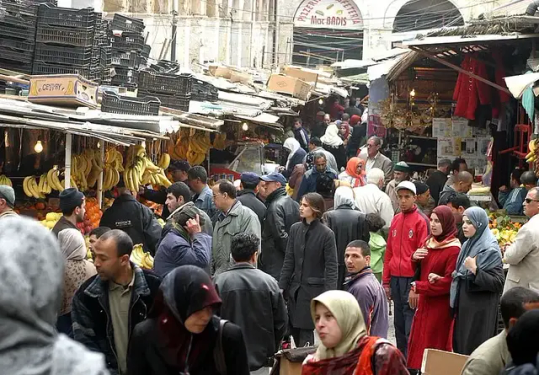
Algerian market scene. Photo by Magharebia. Flickr.
Persecution of civil society in Algeria
Following Algeria’s UPR on 27 March 2023, Amnesty International remains deeply concerned by the continuing prosecution and arbitrary detention of hundreds of state critics, civil society activists, human rights defenders and journalists. Over the past two years, the Algerian authorities have prosecuted, arrested or detained at least 11 other journalists and media workers. The organization welcomes Algeria’s commitment to amend its repressive law on public meetings and demonstrations, but regrets that the authorities rejected recommendations on amending overly broad provisions in the country’s Penal Code that penalize those who peacefully exercise their rights to freedom of expression and peaceful assembly. The organization also welcomed Algeria’s acceptance of the recommendation to amend the provision which excuses rapists who marry their victims. However, they note that Algeria retains several other Penal and Family Code provisions which discriminate based on gender and sexuality, and which are contrary to international human rights standards. These include Article 338 of the Penal Code, which criminalizes “homosexual acts” and Article 66 of the Family Code, which stipulates that a mother who remarries after divorce automatically loses custody of her children.
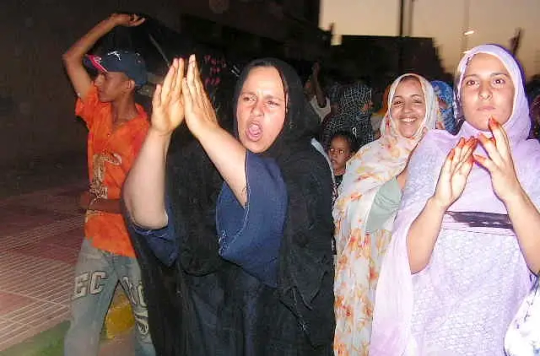
Demo in the Moroccan City of Assa. Photo by Saharauiak. Flickr.
Marital rape and LGBTI discrimination in Morocco
On 24 March 2023, Morocco accepted some recommendations from the UPR on promoting gender equality and combating violence against women, but rejected recommendations to criminalize marital rape and guarantee equality in inheritance. The Moroccan authorities also rejected recommendations on decriminalizing consensual sexual relations between adults of the same sex and introducing measures to combat discrimination against LGBTI people. Morocco needs to do far, far more to align rights protections with international standards. “Morocco’s approach to sexual rights remains deeply flawed— marital rape is legal whereas consensual sex in extra-marital relations or between same-sex adults is still criminalized. Morocco needs to do far, far more to align rights protections with international standards.” said Amna Guellali. Morocco accepted recommendations to consider abolishing the death penalty, yet rejected recommendations to actually do so. The country did, however, accept recommendations to strengthen the protection of migrants’ rights. Sources: THX News & Amnesty International. Read the full article
#Africa#Algeria#AmnestyInternational#HumanRightsIssuesinAlgeria#HumanRightsIssuesinMorocco#Justice/Legalissues#LGBTI#Morocco#NotForProfit
1 note
·
View note
Text
Hi, it's Asexuality Awareness Week and I would like to share one of the reasons why it's important to raise awareness: including asexuality in legal protection.
One of the reasons why legal protections are necessary is the case of asylum seekers. Asexual asylum seekers, who are endangered in their home country, are routinely not accepted as asylum seekers because the legislation protects LGBT people but doesn't include asexuality in the acronym.
Let's see a couple of examples:
In 2018, an Algerian man applied for asylum in the Netherlands, explaining that he feared being persecuted in his country of origin for being asexual and for refusing to marry his niece.
The Netherlands, a country that accepts LGBTI asylum seekers, did not accept this man's asylum request because asexuality is not mentioned as being in the LGBTI. The court also said that asexuality is not punishable in Algeria. But not being legally called by its name and explicitly punished does not mean asexual people don't face discrimination, forced marriages, and threats of violence and rape. (Marriage itself, by the laws in most of the world, must include "consummation", whether the people involved want to or not).
This is the case of a 26-year-old woman living in Senegal, using the pseudonym Jade. Her family, across the border in Guinea, demanded that she find a man to marry. Her sister told her that if she didn’t, their parents would force her to wed a man who would rape her.
In Guinea and Senegal, forced marriages are common – the same sister who threatened Jade was in one herself. Divorce is also heavily stigmatised – when one of Jade’s cousins told her abusive husband she wanted a divorce, he said he would shoot her, her mother and himself.
Jade is a sex-repulsed asexual woman. She feared being married to someone she didn’t love and being subjected to so-called “corrective rape” until she bore children.
She considered suicide.
Her mother suggested sending her to therapy to fix her "aversion to marriage", when Jade refused, the mother said she'd "fix" her herself. She had Jade lay on the floor while she put her hand on her chest and prayed over her, asking afterwards whether she felt any different.
For a while, Jade’s last resort was escaping West Africa permanently. After she began studying in the US, it became her first choice. When researching what her options were, she found the case from the Netherlands that we've talked about before this one. She also found that legislations that aim to protect LGBTQI around the world don't include asexuality.
At present, the only piece of legislation which explicitly mentions asexuality is New York’s Sexual Orientation Non-Discrimination Act of 2003. However, that didn’t help Jade. A New York lawyer told Jade that there was no information as to whether asexuality was grounds for asylum in the US. After a long process of trying in the USA, she couldn't make it but after a year and a half she found an opportunity to do an internship in Ireland, where she lives now.
Since leaving West Africa, Jade has learned that her parents had chosen a husband for her without her knowledge, not long before she managed to escape. She says that, had she not been able to escape, she wouldn't be alive today.
This is what people mean when they say "asexuals aren't LGBTI!", "We can't have asexuals stealing our resources!". These are the kind of resources they mean: the ones that could save the life of a person being discriminated against for not being heterosexual heteroromantic and not conforming to the normative ideas of what their love and sex life should be like. An issue that is deeply shared with the rest of the LGBTQIA+ community.
#💬#ace#ace awareness#asexual awareness week#asexual#asexuality#actually asexual#lgbt#lgbtqia#queer#asylum seekers#aphobia#acephobia#asexual awareness#queer rights#suicide mention tw#rape mention tw
113 notes
·
View notes
Text
There are consistent abuses of LGBTQIA+ people happening in the Kakuma refugee camp due to government neglect and hateful ideas spread about them. If you can, please support them in any way you can. Here are a couple of news articles explaining what's going on in more detail:
Additionally, please reach out to @godwin5mizo if you're interested in helping, they're an activist advocating for the LGBTQIA+ people in Kakuma, and they're willing to help explain what's going on, and how you could help them. Please help spread the word.
#lgbtlove#lgbtq rights#lgbtq community#kakuma#kakuma refugee camp#human rights injustice#activism#lgbtq activism
66 notes
·
View notes
Text
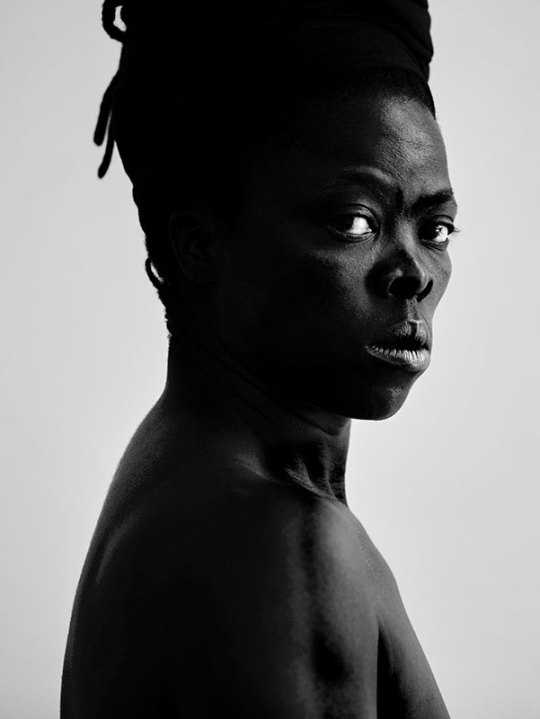


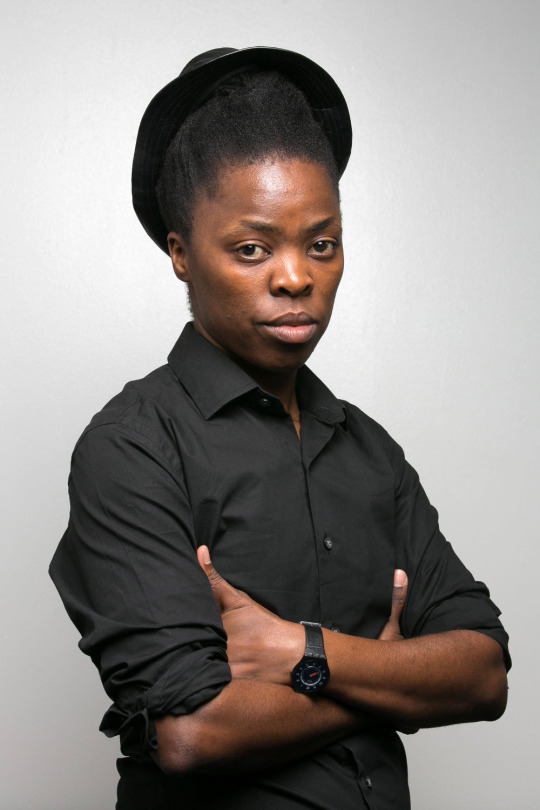

Zanele Muholi
Zanele Muholi is a visual activist, humanitarian and art practitioner who focuses on the documentation and celebration of the lives of South Africa’s Black lesbian, gay, bisexual, transgender, queer and intersex communities.
Beginning in 2006, Muholi responded to the continuing discrimination and violence faced by the LGBTI community by photographing Black lesbian and transgender individuals, resulting in the ongoing portrait project, Faces and Phases. Their self-proclaimed mission is “to re-write a Black queer and trans visual history of South Africa for the world to know of our resistance and existence at the height of hate crimes in SA and beyond”.
#queer#queer artist#art#lgbt#lgbtq#lgbqti#south africa#african art#african artist#intersex#trans#bisexual#lesbian#poc#artist#activist#2023
70 notes
·
View notes
Text
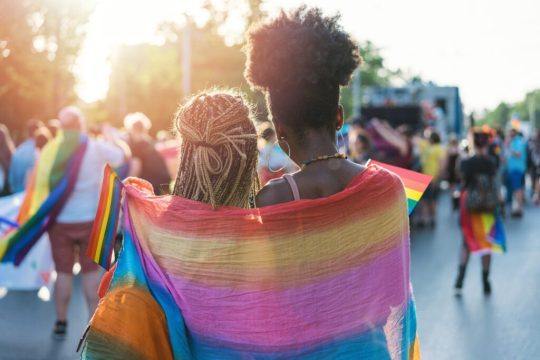
Responding to the passing of the “Human Sexual Rights and Family Values Bill, 2024” by Ghana’s parliament on February 28, Amnesty International’s Ghana Executive Director, Genevieve Partington, said:
“The Parliament’s passage of this draconian bill is shocking and deeply disappointing, coming shortly after Ghana was elected to serve at the United Nations Human Rights Council.
“The bill is one of the most draconian in Africa and seeks to further criminalize lesbian, gay, bisexual and transgender (LGBT) people. It also seeks to punish anyone who supports or advocates for LGBT people, including human rights defenders, medical professionals, journalists, teachers and landlords in violation of the right to freedom of expression and association, with prison terms of up to 10 years.
“LGBTI people have already reported forced evictions, loss of jobs, increased violence and other violations of the rights guaranteed by the country’s Constitution since the bill was introduced in parliament.
“Amnesty International urges President Nana Akufo Addo to respect the human rights of all persons and not to sign this extreme form of discrimination into law, affecting everyone in the country.” (Human Rights Watch)
8 notes
·
View notes
Text
My name is Augustine Kayemba and I am a Ugandan LGBTI man who had to flee his country because of persecution due to my sexual orientation. I am leader of LGBTI at Kakuma as I have a good command of English and communicative skills. The big issue is the violence towards LGBTI, and this is compounded by the systemic racism in Africa and the failure of UNHCR to fulfil its mandate to help LGBTI, as well as perceived but unspoken corruption in Kenya and also UNHCR. The Government of Kenya is planning to close Kakuma in June, and there appears to be no plan for a viable and safe alternative for LGBTI. The prospect is some two hundred men, women, children and transgender being turned out to fend for themselves, or to be ‘encouraged’ to return to their countries of origin. This would be fatal, and against UN rules and regulations. For these reasons, I want out voice to be heard.
Your's sincerely Augustine LGBT kakuma camp kenya.

8 notes
·
View notes
Text
“Politicians and cultural leaders have made various assertions that homosexuality was never practiced in traditional sub-Saharan Africa during precolonial times. Such statements generally suggest that it was imported from outside sub-Saharan Africa with Arabs and colonialists often being blamed for it. […]
It has been documented that homosexuality is as indigenous to Africa as heterosexuality. Many practices that occurred across the continent could clearly be regarded as same-sex ones, [including] woman to woman marriages, which take place in more than 40 ethnic groups spread across sub-Saharan Africa from South Africa, through Benin and Nigeria, to Kenya and South Sudan. Others that were accepted in some African societies of the past include men treated as women, for example such individuals among the Langi in Uganda might even be allowed to marry men. Ancient paintings and traditional dances in language provide evidence of a history of a Mystic surety in the continent. […] Furthermore, many indigenous languages contain words that refer to homosexuality, for example, the Lugandan word bisiyaga. […] In the Shona language the words murumekadzi and mukadzirume can be loosely translated as man woman and woman man respectively. The first refers to a man who takes on female roles and the second to a woman who takes on male roles. […] However, these practices may not easily fit within today’s description of same-sex relations and tags like ‘LGBTI’. They had many different purposes, perhaps the least of which were sexual pleasure. For example, men who took on female roles would sometime do so because they were possessed by spirits –that is, they were acting as mediums for female spirits. It is important to note that the individuals involved in such practices usually conformed to the dominant heterosexual way of life. They went on to marry, have children and be part of heterosexual/heterocentric families. In this sense, such persons were similar to those of today described as ‘in the closet’.
It is also important to note that some of these practices were documented more by non-Africans than Africans, usually with highly disparaging language. The heterosexist worldview of these authors perhaps prevented them from setting the practices more thoroughly and thus discerning their real nuance, meaning and significance. For example, the Buganda king, the Kabaka, is commonly referred to as a Bbaffe, which loosely translates as ‘our husband’. Used by men and women in reference to the king, the term could easily be mistaken as meaning that the Kabaka was literally a husband to both men and women in the kingdom, and it was acceptable for him to have physical relations with both sexes.
Another vivid example can be found in the Portuguese descriptions regarding the Shona Kingdom of Mutapa and its king, or Mwene Mutapa. The Portuguese described the Mwene Mutapa’s advisers as ‘women’, which was due to literal translation of the term used for them. The implication was that, since they were regarded as women, the king treated them as his wives and could perhaps have sex with them.
These precolonial practices were not necessarily encouraged in these societies, but nor were they necessarily punished. Precolonial African societies tended to place an extremely high and prodigiously over determined value on heterosexual marriage and reproduction. Individual sexual desire was largely subsumed to the broad interests of the extended family or lineage. Despite this, individuals were often given leeway to veer from accepted gender roles and sexual practices, provided they do not affect the broader interest of society. As such, homosexuality –just like celibacy and adultery– was deliberately not encouraged but at the same time it was not suppressed. Such things were simply ignored and hardly discussed. This is perhaps the source of the strange consensus that there was no homosexuality in traditional Africa.
More importantly, these practices were not criminalised. All African societies had established social norms, and deviance was usually punished. For sexual deviance the punishments were particularly heavy, and so, if heterosexuality was one norm from which no deviation was allowed, punishments for homosexuality would have been prescribed. Thus, the fact that there seems to be no designated punishment for same-sex relations points towards tacit acceptance of these practices, rather than the assertion that they did not exist. Indeed, it could be said that it was colonialists who first introduced criminalisation of homosexuality.”
-Adrian Jjuuko and Monica Tabengwa, “Expanded criminalisation of consensual same-sex relations in Africa: contextualising recent developments”, in Envisioning Global LGBT Human Rights, (Neo)colonialism, Neoliberalism, Resistance and Hope (2018)
#queer history#queer stuff#precolonial history#i love this book sm#also lol at everyone blaming arabs and persians for homosexuality sorry for being the og i guess
8 notes
·
View notes
Text
Part 8: Namibia, Fiji, Vanuatu, Tonga, Tuvalu
Some these are really short, I wasn't able to find a lot of information on them. I am, admittedly, only doing a surface search to save time, but still.
(Also I'm limiting how much time I spend writing them)
I did add Namibia to this one, and Zimbabwe links will be at the bottom.
-Soul
Namibia
While Namibia does criminalize homosexuality by men, it does have a pride celebration.
Namibia’s pride celebration began in December 2013, and was run by Out-Right Namibia in Windhoek. Approximately 100 people showed up, a mix of black and white citizens. This was a historical moment, not just because it was pride, but because as Linda Baumann explained, “there is a gap between the two communities in the country and it was historic; a mixture of our communities getting together”. Marchers in the celebration carried signs saying things like “Up with love, down with hate” and “Dare to be different”. The organization was given permission to hold this event by the Windhoek government, and was provided with four police officers to protect them. There were protestors at pride, but the majority accepted it.
This event was a large step forward for Namibia queers, but there is still plenty they are working towards. In 2018, a gay couple, one of which was from Namibia, the other from South Africa, won a case to immigrate their son to Namibia, but earlier this year(2023), it was repealed by the supreme court. Namibia continues to fight back, but the government resists.
Sources: 1 2 3 4
Fiji
Over all, LGBT rights in Fiji are decent. In February of 2010, homosexuality became legal, and in 2018, they had their first pride. However, gay marriage is still illegal, and anti-discrimination laws are lacking.
Talking about pride in Fiji, it was approved by the local government, and was escorted by police. Presumably to protect it. More importantly though, it was the first pride march in any Pacific Island. That isn’t to say it came easy though, in 2012 a pride celebration was planned in one of the bigger cities in Fiji. It was, unfortunately, canceled by the police. It was attempted again afterwards, but they had no success until doing it in a small town in 2018. The pride was organized by the Rainbow Pride Foundation.
In 2016, former Prime Minister Frank Bainimarama said that all LGBTI people in Fiji should move to Iceland. Also in 2016, the military was very loud with its homophobia, and according to one advocate who married his husband in a different country, if his relationship had been found out they would have been taken to the barracks.
There is a long going fight in Fiji concerning the safety of LGBT+ people. There are high rates of violence against them, and they feel unsafe going to the police. Rabuka, the current Prime Minister, has made no statements.
Sources: 1 2 3 4
Vanuatu
Homosexuality is legal in Vanuatu, and they have a form of pride that is not the traditional march. Vanuatu pride is run by V-Pride, an LGBT+ organization. Every year since 2020, V-Pride has run a fashion show. In 2021, six designers showed more than 80 outfits to over 500 guests. In a historic moment, Honorable Ralph Regenvanu spoke at this event. He talked about how important it is to talk about V-Pride and its contributions to fashion and society, and about the importance of Vanuatu reaching its obligations, both nationally and internationally, to leave no one behind.
V-Pride offers testing for STI’s and information.
Sources: 1 2 3
Tonga
In May of 2021, the president of Tonga Leitis Association was murdered. They were described as “a selfless humanitarian and a tireless advocate for the rights of those with diverse sexual orientations, gender identities and gender expressions.” by the association. Polikalepo Kefu was a well respected individual in the community, and spoke for people all through the Pacific Islands. The association was created 1992 and specifically advocates for trans and otherwise gender variant people in Tonga. They provide healthcare, and services to people with AIDS/HIV.
In 2018, a rugby player named Israel Folau spoke against homosexuality. In response, Honorable Frederica Tuita Felipe sent out several tweets.
Sources: 1 2 3 4 5 6
Tuvalu
While Tuvalu was a signatory in 2011 to end violent homophobia and transphobia, and representatives sat in on a campaign by the UN to end Homophobia and Transphobia, it’s still illegal. Kind of. Tuvalu laws specifically only prohibit men from having sex with each other. Tuvalu does have a transfeminine identity called Pinapinaaine, and Canada sent a report to Tuvalu about how their laws can be fixed to accommodate queer people in 2014.
Sources: 1 2 3 4
Zimbabwe
Links: 1 2 3 4 5 6 Please note these are links to articles I was going to use as a starting point for research.
Part 1
Part 7<-Announcement->Part 9
Please support this project by checking out the LGBT+ Identities and Experiences survey in our link tree! Also, a full description of this project is being posted in our discord!
Pride Month Calendar for this project
Tell me in replies if you want to be tagged!
#project unknowing#lgbt#lgbtq#lgbtqia#lgbtqia+#queer#current politics#discrimination#pride month#Namibia#zimbabwe#Fiji#vanuatu#tonga#tuvalu#lgbt politics around the world
6 notes
·
View notes
Text
Artists statement by Zanele Muholi
(The correlation that this statement has with my personal project isnt incredibly strong, since my take will not involve commentary on race.. but I enjoyed an explanation from this perspective)
2012 - 2020 Zanele Muholi Somnyama Ngonyama
With the series Somnyama Ngonyama, I have decided to turn the camera on myself. In contrast to my life-long project of documenting members of my black LGBTI community in South Africa and beyond, one in which I normally have the privilege of witnessing participants’ presentation of themselves according to their own self-image, with this new work I have created portraits in which I am both participant and image-maker. Somnyama Ngonyama (meaning ‘Hail, the Dark Lioness’) is an unflinchingly personal approach I have taken as a visual activist to confronting the politics of race and pigment in the photographic archive. It is a statement of self-presentation through portraiture. The entire series also relates to the concept of MaID (‘My Identity’) or, read differently, ‘maid’, the quotidian and demeaning name given to all subservient black women in South Africa. Experimenting with different characters and archetypes, I have portrayed myself in highly stylised fashion using the performative and expressive language of theatre. The black face and its details become the focal point, forcing the viewer to question their desire to gaze at images of my black figure. The visual variety depicted in the series references the histories of black and white fashion photography and of black and white portraiture. Each and every photo captured in this series is a commentary on a specific event in South Africa’s political history, from the advent of the mining industry, to the fame or infamy of the ‘Black Madonna’, to the recent massacre of miners at Marikana; from family to society and back again. By exaggerating the darkness of my skin tone, I’m reclaiming my blackness, which I feel is continuously performed by the privileged other. My reality is that I do not mimic being black; it is my skin, and the experience of being black is deeply entrenched in me. Just like our ancestors, we live as black people 365 days a year, and we should speak without fear. As Audre Lorde so eloquently put it in her poem, ‘A Litany for Survival’:
and when we speak we are afraid our words will not be heard nor welcomed but when we are silent we are still afraid So it is better to speak remembering we were never meant to survive — Audre Lorde, The Black Unicorn: Poems
One of the realities that I face as a South African visual activist is being forced to make a living outside this country. For a project to be well executed I have to live on the road where most of the work in this series was produced – dashing from New York to Florence to Nottingham, then to Oslo and Liverpool, back home for a week in Johannesburg, and then off to Ann Arbor, Detroit and New York – as was the case over the past three months. This shuttling around sometimes make me feel disoriented, disconnected and almost homeless. The culturally dominant images of black women start to infiltrate my soul and function as a constant reminder that such images still inform how black women are perceived here and now. One way that I deal with this exoticised self/other is to exorcise those images through my photography. These self-portraits have been captured in different continents: America, Africa and Europe; in the cities of Amsterdam, Charlottesville, Oslo, Umbria, Syracuse, New York, Malmo, Gothenburg, Johannesburg, Paris, Durban, London, Mayotte, Florence and Gaborone. My aim is to mark memories and connections I made with those places and through my interactions with people there. I created materials and used found objects that expressed my moods. All the materials utilised in the portraits have their own primary functions. I focused on senses such as hands touching and eyes penetrating (unsettling eye contact) while producing the work. In Somnyama Ngonyama, I have embarked on a discomforting self-defining journey, rethinking the culture of the selfie, self-representation and self-expression. I have investigated how photographers can question and deal with the body as material or mix it with objects to further aestheticise black personhood. My abiding concern is, can photographers look at themselves and question who they are in society and the position/s that they hold, and maintain these roles thereafter?
0 notes
Text










LGBTI and of North African descent
Alewya (Egypt)
Naomi Lareine (Mauritania)
Lalla Rami (Morocco)
Salah Barka (Tunisia)
Hass Agili (Libya)
Khookha McQueer (Tunisia)
Nxdia (Egypt)
Bilal Hassani (Morocco)
Yanis (Morocco, Algeria)
Adam Darko (Algeria)
#lgbti in north africa#alewya#naomi lareine#lalla rami#salah barka#hass agili#khookha mcqueer#nxdia#bilal hassani#yanis#janis sahraoui#adam darko#egypt#mauritania#morocco#tunisia#libya#algeria
42 notes
·
View notes
Text
Lesbian couple murdered by one of the women’s ex-boyfriends
A lesbian couple was shot to death in Edendale, South Africa, in an act of violence being investigated as a hate crime. Nombulelo Bhixa, 28, and Minenhle Ngcobo, 22, both worked together at a store in the city center. Related Candace Owens says TikTok is socially engineering men to be gay The far-right host’s latest conspiracy theory says the Chinese app is forcing Americans into “unnatural behaviors.” On August 27, the pair was shot as they were getting into a taxi. The suspect is one of the women’s ex-partners and the father of her child. He apparently did not accept that his former partner was now in a relationship with a woman, Newzroom Africa reports. Global perspectives delivered right to your inbox Our newsletter bridges borders to bring you LGBTQ+ news from around the world. Subscribe to our Newsletter today The alleged perpetrator had harassed the couple in the past. One of the victims reportedly filed a protection order against him after he continuously harassed the couple. A friend of the two, Bongekile Mkhize, told The Witness, “All I know is that they were very much in love with each other.” Mkhize also said she was “shocked and heartbroken” by the “senseless tragedy.” “I am hurt about what has happened. What hurts the most is that no one is giving us proper answers as to what happened.” Uthingo Network, an LGBTQ+ group based in the region, called the killing “horrific” in a statement posted on Facebook. “This brutal act highlights the deep-seated homophobia and violence that persists in South Africa, especially in rural areas where LGBTI+ individuals are often marginalized and under-protected. The systematic lack of awareness and understanding in these communities contributes to an environment where such hate crimes can occur frequently and with little consequence,” the statement said. “The fear of further victimization often silences those who seek justice, perpetuating a dangerous cycle of violence and impunity.” Uthingo Network said that the government, community, and individuals should “stand together against all forms of hatred and violence, working towards a future where no one is targeted for who they are or who they love.” A council member from the city where the shooting took place, Councilor Sanele Zuma, also condemned the deaths. “What has happened is not something we take lightly as a community. It is shocking to us that there are people who still lose their lives just because of their sexual orientation.” Zuma also noted the tragic irony of the shooting occurring during Women’s Month. A police spokesperson, Sergeant Sifiso Gwala, confirmed to Witness that the case is under investigation, but no arrests have been made. “We are following up on leads and appealing to the community to come forward with any information that may assist in the investigation,” Gwala said. http://dlvr.it/TCpqqv
0 notes
Text
Brisbane Frontrunners celebrate 25 years
New Post has been published on https://qnews.com.au/brisbane-frontrunners-celebrate-25-years/
Brisbane Frontrunners celebrate 25 years

LGBTQIA+ running and walking group Brisbane Frontrunners celebrate their 25th anniversary this year
It’s a special year for the Brisbane Frontrunners with 2024 marking their 25th anniversary.
The group started with just two people back in 1999 and has grown to almost 170 registered members.
Ray Moore who coordinates the group, says that their achievement is a first for the city.
“It’s just been one of those groups that has just continued. I think from memory were probably the longest continuously running LGBTI sporting group in Brisbane,” he says proudly.
Their longevity comes down to community support and hard work from within the group.
“We’re an unincorporated group, so we rely on donations and people volunteering their time to do things. So we’ve had a big change probably in the last couple of years where we’ve formed alliances with Hombre and Brisbears [to help with fundraising],” he said.
2024 events
The group itself is putting on a number of events throughout the year to celebrate the 25-year milestone.
This kicked off in January when Councillor Vicki Howard helped fund and launch a commemorative t-shirt. Then in February, an official party was held at the Wickham to mark the occasion.
View this post on Instagram
A post shared by Brisbane Frontrunners 🏳️🌈 🏳️⚧️ (@brisbane_frontrunners)
This month is an initiative to help bring in more members.
“April is ‘Bring a Friend’ month, so we are encouraging people to bring someone along,” Ray explains.
The social part of the group is just as important as the exercise. The group holds social drinks after each of their Monday and Thursday sessions at Kangaroo Point.
Each session sees runners and walkers of every ability take part.
The more serious can take advantage of a trainer to prepare for fun runs and marathons, while many members are just looking to walk and improve their fitness.
The group also includes every part of the LGBTQIA+ rainbow as well as some straight allies. It also ranges from people in their twenties all the way up to members in their seventies.
Joining Brisbane Frontrunners
Joining the group has no cost attached and new members are welcomed and catered for.
“You just turn up about a quarter to six, we find out if you’re either walking or running. And if you run, we find out what speed you are and we’ll then partner with one of their other people about the same calibre,” Ray explains.
Not only are those who attend members of the Brisbane group, they also join the international network of Frontrunner clubs around the world.
This sees international members regularly turn up to the group’s meet-ups.
“We’ve had people from South Africa, London, Hong Kong and America. There are about 170 groups around the world, so there’s always somewhere to go,” Ray says.
If you are interested in joining the Brisbane Frontrunners in their celebratory year, they meet each Monday and Thursday on Holman Street in Captain Burke Park.
Visit brisbanefrontrunners.org.au for more information
Read next:
Brisbane Frontrunners are not your average running club
Brisbane Frontrunners joining in WorldPride celebrations
Qld athletes share their inspiring Gay Games experience
For the latest LGBTIQA+ Sister Girl and Brother Boy news, entertainment, community stories in Australia, visit qnews.com.au. Check out our latest magazines or find us on Facebook, Twitter, Instagram and YouTube.
0 notes
Text
NEW: Uganda may execute a man for the first time since 2005. In Uganda, same-sex relationships will still carry the death penalty, joining eleven other nations. This represents a staggering setback in the treatment of LGBTQ+ people in Africa.
#uganda#lgbtqia#lgbtqia+#homophobia#class war#lgbtqia+ solidarity#africa#humanrights#ausgov#politas#auspol#tasgov#taspol#australia#fuck neoliberals#neoliberal capitalism#anthony albanese#albanese government#fuck the gop#fuck the police#fuck the supreme court#fuck the patriarchy#eat the rich#eat the fucking rich#anti homophobia#antinazi#antiauthoritarian#antifascist#antinationalist#war crimes
0 notes
Text
LGBTQI+ rights in Chad 🇷🇴
LGBTQIA+ people in Chad face legal & societal challenges highly, not experienced by non-LGBTQI+ citizens.There is no legal recognition of same-sex union,marriage & one's gender identity.
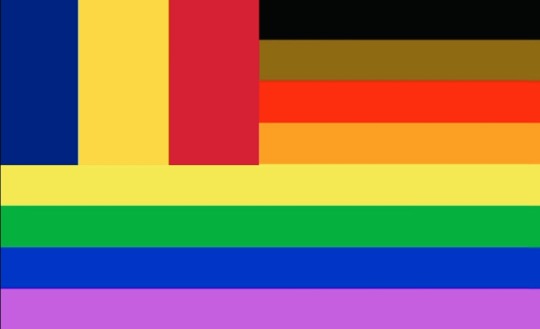
LGBTQIA+ Pride Flag of Chad
Legality of Homosexuality
Both male and female same-sex sexual activity is illegal in the country under since August 2017.
According to Chapter II Article 354: Everyone who has sex with persons of the same sex is liable to imprisonment for three months to two years and a fine of between 50,000 and 500,000 francs.
According to Chapter III Article 360: Anyone who, without violence, maintains a sexual relationship or practices sexual touching on a person of the same sex aged less than 18 years will be punished with imprisonment of 1 to 3 years & a fine of 100,000 to 500,000 francs.
Article 350 of the Penal Code provides imprisonment of ten to twenty years when the rape is committed because of the sexual orientation of the victim.
History
Africa has a tolerant history of diverse sexuality & non-normative genders.Before the new penal code took effect in August 2017, sexual activity between same-sex adults had never been criminalised.
But an anti-gay bill was introduced in 2014, aimed to impose 20 years imprisonment for consensual gay sex (proposed Article 361bis).On 12 December 2016, the National Assembly passed an updated penal code criminalising both male & female same-sex sexual activity by a vote of 111 to 1 (with 4 abstentions), but classing acts between consenting adults as a misdemeanour offence.On 8 May 2017, the new penal code was enacted by the President Idriss Deby which criminalizes all type of consensual homosexuality.
Public Opinion,Social Status
Since 2013 religious groups,youth associations & women’s groups sought to petition the government to punish the couple for what they described as a “vile & anti-religious act”.
In 2014 conference paper at the International AIDS Conference indicated that “homosexuality in Chad is widely considered as a taboo subject.
Discrimination
There is no legal protection against discrimination based on sexual orientation and gender identity.According to US Department of state reported that There were few reports of violence against LGBTQI+ Chadians, in large part because most such persons were discreet about sexual orientation or gender identity due to social and cultural strictures against non normative sexuality.
Furthermore, there was no reference to SOGIESC issues in the country during Chad's 1st and 2nd UPR cycles.In UPR's 3rd cycle which carried out in November 2018, Chad rejected all recommendations related to SOGIESC.Moreover, the State did not provide any comments referring to the SOGIESC situation, during its participation in the working group session.
On September 2013, police persecuted 2 gay men for celebrating their symbolic gay marriage in Abeche.They were charged with indecent exposure.The 2 men were sentenced for two years in prison with a fine of 50,000 CFA francs.Consequently religious groups,politicians protested against those 2 homosexuals.They demanded strict laws against homosexuals.
On 2019, a local advocacy group reported that 22 men were arrested in Moussoro for same-sex sexual activity [Citation needed]. On July 2020, ILGA reported an incident in which a person was persecuted for crossdressing.A police spokesperson referred to the arrested person as a ‘homosexual’, and indicated that they had identified them on the basis of his/her/hir dress.
LGBTQ+ Organizations
There is no public or official LGBTQI+ rights organization in Chad.
However, OSISA supports initiatives that promote advocacy, networking and capacity building for LGBTQI+ Chadians.OSISA created the LGBTI Special Initiative in Chad region that can specifically focus on LGBTI and together with partner organisations, contribute to the fostering of an inclusive society in which LGBTI can feel at home and assert their rights in southern Africa.
Peace Corps is also working for the betterment of sexual minority in Chad,Mali & other sub-saharan countries.
0 notes
Text
Zanele Muholi
https://www.unadonnalgiorno.it/zanele-muholi/

Le persone nere in Sud Africa non hanno neppure il lusso di avere delle immagini che attestino le loro conquiste, figuriamoci la possibilità di visitare musei e gallerie. Parlando di noi insegneremo che esiste ben altro al di là degli stereotipi che ci vogliono promiscui e malati di AIDS. Ho anche voluto educare quanti, nella comunità LGBTI, hanno interiorizzato stereotipi e traumi a causa di ciò che è stato detto o taciuto durante la loro crescita. Lavoro, creo con consapevolezza e responsabilità, per onorarci.
Zanele Muholi si definisce un’attivista visiva che esercita l’arte, la sua macchina fotografica è uno strumento di denuncia contro i soprusi e la marginalizzazione della comunità LGBTQIA+ nera sudafricana.
Indaga instancabilmente temi come razzismo, eurocentrismo, femminismo e politiche sessuali.
Gli scatti, sempre in bianco e nero e spesso autoritratti, ormai esposti in tutto il mondo, rappresentano un mezzo per affermare la necessità di esistere, la dignità e il rispetto a cui ogni essere umano ha diritto.
Nata a Umlazi, in Sudafrica, il 19 luglio 1972, sin da giovanissima si è sentita differente, notando che non c’erano immagini di corpi neri nei mainstream, ha avvertito la necessità di utilizzare la fotografia per sfidare l’approccio ai racconti spesso fraintesi da chi si trova al potere.
Ha seguito uncorso di fotografia al Market Photo Workshop di Johannesburg e iniziato come fotoreporter per Behind the Mask, fanzine online con cui ha documentato crimini e aggressioni contro la comunità lgbtq+, subendo anche devastanti conseguenze personali.
Ha voluto sopperire alla negazione di visibilità e rappresentazione attraverso una documentazione appropriata e testimonianze visive, in luoghi dedicati alla cultura e nei media.
Nel 2002, ha contribuito a fondare il Forum for the Empowerment of Women, organizzazione lesbica nera dedicata a fornire uno spazio sicuro dove incontrarsi e organizzarsi.
Ha conseguito un Master of Fine Arts alla Ryerson University di Toronto con una tesi sulle rappresentazioni visive del lesbismo nero nel Sud Africa post-apartheid.
Fa parte del collettivo Inkanyiso che ha prodotto un poderoso archivio LGBTI il cui motto è Produrre, educare, diffondere.
Nel 2010 ha co-diretto il documentario Difficult Love, presentato in vari festival internazionali, il suo primo approccio alla filmografia era stato quattro anni prima col corto, Enraged by a Picture.
Nel 2013 è stata nominata professoressa onoraria di cinema e fotografia presso l’Accademia di Brema, in Germania.
Negli ultimi anni è diventata una delle artiste più rappresentate. Dopo aver esposto allo Stedelijk Museum di Amsterdam (2017), al Museo de Arte Moderna di Buenos Aires (2018), alla Biennale di Venezia (2019) e al Gropius Bau di Berlino (2021), nel 2023 è toccato a Parigi, alla Maison Européenne de la Photographie e al Mudec di Milano.
Zanele Muholi è una figura unica nel mondo dell’arte contemporanea internazionale, le sue fotografie hanno innescato un’importante discussione su questioni come identità e attivismo politico che, da tempo, non si vedeva nel mondo dell’arte.
I suoi lavori documentano, fanno sorgere domande, hanno il potere di cambiare la prospettiva sul mondo, ci costringono a ripensare al concetto stesso di rappresentazione.
Racconta storie individuali e collettive andando oltre le rappresentazioni convenzionali. Dona la possibilità di auto rappresentarsi rendendo le persone protagoniste attive anche nella costruzione dell’immagine, definendo insieme location, abbigliamento e pose.
I suoi splendidi autoritratti in bianco e nero rappresentano narrazioni della segregazione della donna nera, degli stereotipi, arrivano a raccontare la sua vita personale, la storia di sua madre, i suoi amori, creando un potente corto circuito visivo.
Sono anni che si dedica a creare tantissimi ritratti per costruire il puzzle della comunità black e queer sudafricana, compresi quelli delle persone sopravvissute ai crimini d’odio.
Alla base dell’intolleranza, del razzismo e della violenza c’è l’ignoranza, alla quale si può porre un limite solo attraverso l’istruzione. Questo messaggio è per le generazioni future e per quanti avranno il desiderio di imparare. Non tutti sono liberi, le ramificazioni del colonialismo e dell’Apartheid si continuano a percepire ovunque e si manifestano sotto forma di disoccupazione, black out, inefficienza del sistema di istruzione. Se non lavoriamo per cambiare la schiavitù mentale che tiene ancora molti in ostaggio, continueremo a vedere razzismo, povertà e guerra prendere sempre più slancio. Questo lavoro va oltre me stessa, riguarda noi. Il mio è un invito a combattere in nome di coloro che non possono farlo, in patria e oltre i nostri confini.
1 note
·
View note